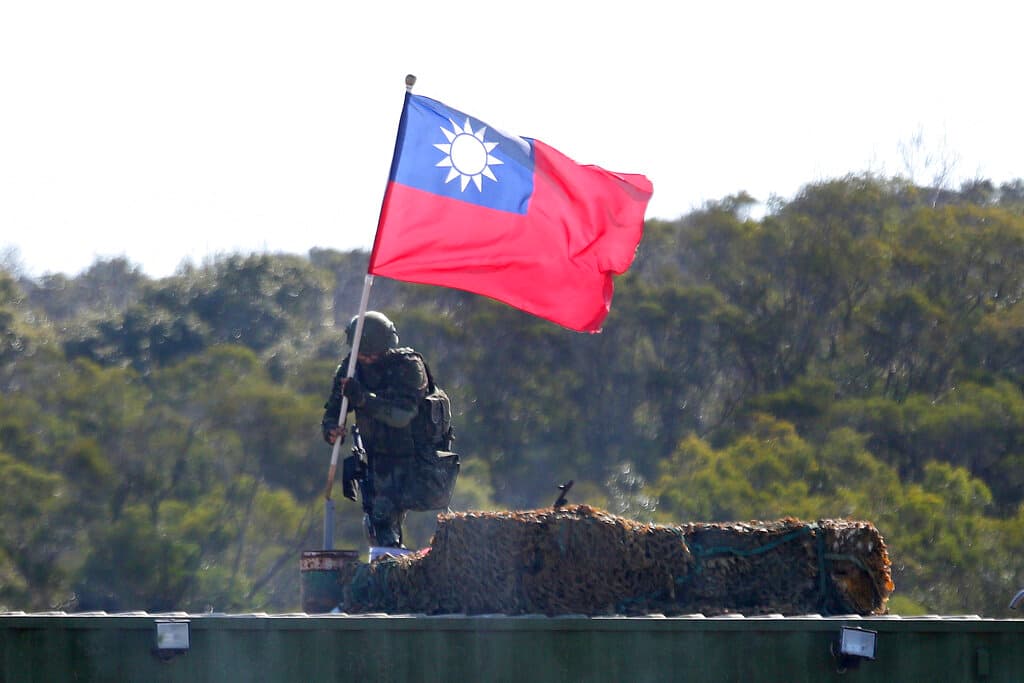While America Sleeps
As Free China extends its military conscription, America’s armed forces are having trouble filling their ranks with volunteers.

The decision of Free China to extend its military conscription certainly puts into sharp relief one of our favorite issues — the draft. This comes not only as Russia threatens to jump its traces in the war in Ukraine and also as the “People’s Republic of China” is menacing Taiwan, but as President Biden insists we will race to its defense. Our own military, meanwhile, is having trouble filling its ranks with volunteers.
This has been fizzing through the news reports in recent years. Army Times early last year covered the various factions of the debate, noting that 10 million Yanks were drafted in World War II and 9 million had served during Vietnam, 2 million of whom were called by lottery. We went all-volunteer in 1973. Yet the headline on the story was “All-volunteer force can’t meet Pentagon’s future needs, advocates warn.”
So why aren’t we bringing back the draft? We mark the question in our capacity as the only American newspaper, at least so far as we can tell, that supports the return of the military conscription. It seems that in New York the only politician who agrees with us, or vice versa, is the former chairman of Ways and Means, Charles Rangel, who retired from Congress in 2017. His reasoning on this head is different from ours.
Mr. Rangel — whom, despite our differences, we defended during his controversies — favors the draft as a brake on war. We don’t particularly disagree with his wisdom here. It certainly is a brake on our own government’s rush to war. The danger is that a refusal to summon our citizens to arms could also be seen as an invitation of our enemies to attack. Our view is that if the draft would help fill our ranks, we’d best use it.
So long as it’s not fair. We oppose fairness in the draft as a matter of principle. The principle we favor is that when it comes to war, the freely-elected government of America can pick whom it needs. Or, to put it another way, it’s not only in respect of love that all is fair. All is fair in war, too. We’ve made that point when it is argued that what the Army really needs now is highly skilled, technically trained soldiers. Let the Congress call them up, we say.
We’ve talked over the years with several admirals and generals and other brass on this head. They always stress that the military is not calling for the draft — and, often, that the military opposes a draft. It’s one thing for the military to take that position when it is getting all the men and women it needs on a voluntary basis. It’s another thing to make that argument when our military is falling short at getting recruits or retaining officers and enlisted men.
The draft helped win both world wars. Drafted soldiers won the military part of, say, the Battle of Vietnam. In that affray, it was the politicians who, in Congress, gave away victory and forced the free Vietnamese to retreat. We share the libertarians’ abhorrence of war as, among other things, a friend of the state. Our view, though, is that a strong American military is a friend of liberty itself — more so than any other force yet to appear in arms.
Which brings us back to Free China. The report by our C.M. Vik on the war game hosted by the Center for Strategic and International Studies stresses that in all scenarios it looks like the Free World would prevail in Taiwan. Only, though, if, among other things, Taiwan fought back with all it had and that America moved fast to back them up. If we were to wait for that to turn to the draft, though, we’d be in trouble.
According to the Selective Service’s website, the Defense Department’s requirements are that the draft “must deliver the first inductees to the military within 193 days from the onset of a crisis and the law being updated to authorize a draft.” By that point, though, the war game Ms. Vik covered suggests the fight for Taiwan would be long over. Hence the logic of getting the draft reauthorized and active ahead of the wars that are brewing.

